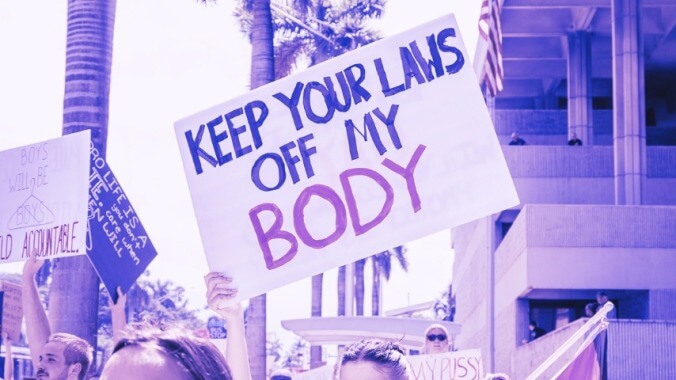Georgia Cops Drop Charges Against 24-Year-Old Who Miscarried After Massive Public Pressure
“This doesn’t undo the trauma [she] faced of being arrested after a tragic medical emergency,” the organization Pregnancy Justice said in a statement.
Photo: Getty Images AbortionPolitics
Police in Georgia have dropped criminal charges against a 24-year-old woman over her miscarriage and how she disposed of fetal remains. (Jezebel is choosing not to publish the woman’s name.) At the end of last month, the Tift County Sheriff’s Office charged her with “concealing the death of another person” and “abandonment of a dead body” after police recovered fetal remains from a dumpster near her apartment complex, following an anonymous tip. (Friendly reminder: Do not ever talk to police about the outcomes of other people’s or your own pregnancies and take all precautions to protect your medical privacy.) They found the woman bleeding and unconscious outside her building, but instead of trying to help her, they arrested and jailed her.
Police went so far as to order an autopsy on the remains from the woman’s miscarriage. The county coroner uncovered “no signs of injury or trauma, and the baby never took a breath,” confirming that a miscarriage had occurred at about 19 weeks. But until Friday, the charges against her stood. The “concealing the death of another person” charge came with up to 10 years in prison in Georgia, while the “abandonment of a dead body” charge came with up to three. But about one in four pregnancies end in miscarriage, and there are no legal standards or universal guidelines on how people should dispose of fetal remains.
Despite inflicting unthinkable trauma on a young woman in the wake of her medical emergency, Tift County District Attorney Patrick Warren does not sound especially sorry. If anything, his statement announcing that the charges had been dropped seemed more apologetic to the sadistic people who wanted to see the 24-year-old punished.
“After thorough examination of the facts and the law, my office has determined that continuing prosecution is not legally sustainable and not in the interest of justice. This case is heartbreaking and emotionally difficult for everyone involved, but our decision must be grounded in law, not emotion or speculation,” Warren’s statement begins. However “emotionally difficult” this might have been for “everyone involved,” only one person was found bleeding and unconscious outside their home and then jailed. Warren then claims that “law enforcement acted in good faith and responded to a very difficult and emotional situation.”
-

-

-

-

-

-

-

-

-

-

-

-

-

-

-

-

-

-

-

-

-

-

-

-

-

-

-

-

-

-

-

-

-

-

-

-

-

-

-

-








































